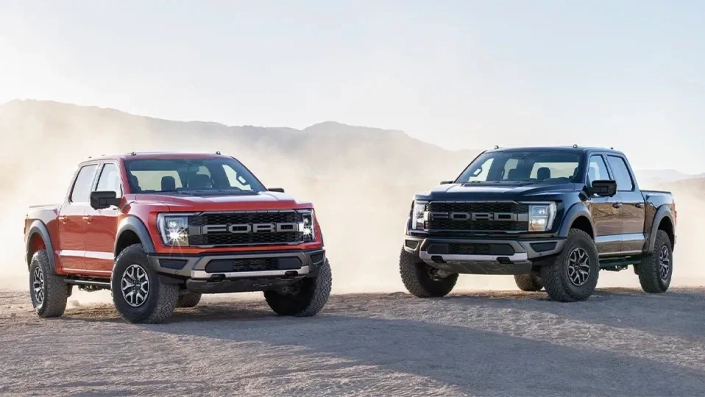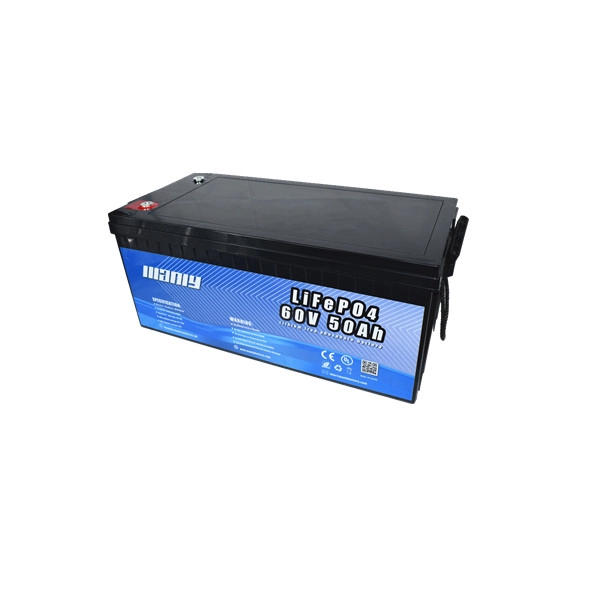The First factory of lithium iron phosphate (LFP) battery will be built by Ford in U.S.
1. Ford introduces lithium iron phosphate battery technology, and its electric vehicles will be equipped with different types of batteries
According to Ford China news, Ford officially announced an investment of 3.5 billion US dollars to build a lithium iron phosphate battery factory in Marshall, Michigan, USA. This is the first battery factory in the United States wholly owned by an automaker and will introduce lithium iron phosphate battery solutions for Ford’s electric vehicle products.
The new factory is called “Michigan BlueOval Battery Industrial Park”, which is wholly owned by Ford. It is expected to start production in 2026, and it will employ 2500 at the beginning. The annual production capacity is about 35GWh, which can supply LFP battery packs for about 400,000 EV every year. Ford will also consider expanding plant capacity in the future.
Jim Farley, President and CEO of Ford Motor Company, said: “Ford’s electric vehicle products have aroused great enthusiasm and demand from consumers. In order to further increase production capacity, we are the first automaker to declare investment in the construction of Lithium-ion and lithium iron phosphate batteries production line in the United States. We will be equipped with more advanced, economical and durable battery technology in EV. Thousands of consumers will benefit from this.”
It is important that Ford plans to add lithium iron phosphate battery solutions to its core market of electric vehicle. As part of the plan, Ford has reached a new agreement with battery maker Contemporary Amperex Technology(CATL). According to the agreement, CATL will provide technical and service for Ford’s lithium iron phosphate battery factory. Ford engineers will be responsible for the integration of batteries and vehicles.
Through cooperation with CATL, it will help Ford increase battery production capacity and bring in new battery technologies. Previously, Ford has cooperated with SK On and LG New Energy on power batteries.
In addition, before the battery factory put into production, Ford will respectively launch lithium iron phosphate battery versions for Mustang Mach-E and F-150 Lightning electric pickups in the North American market this year and 2024.
In July 2022, CATL announced that the company signed a memorandum of cooperation with Ford Motor. The two parties established a global strategic partnership, which is covering the supply of power batteries in China, Europe and North America.
According to another agreement signed by the two parties, starting from 2023, CATL will supply lithium iron phosphate battery packs for the Ford Mustang Mach-E in North America. From the beginning of 2024, it will provide lithium iron phosphate battery packfor the Ford electric pickup F-150Lightning in North America. In addition to providing lithium iron phosphate batteries technology to Ford, CATL will also cooperate with Ford in other battery technologies.
Ford has plan to invest more than $50 billion in electric vehicles by 2026. As part of this plan, Ford and its battery technology partners have invested more than US$17.6 billion in the construction of electric vehicle and battery production bases in the United States, since 2019, .
Ford is working hard to reach a global production capacity target of 600,000 electric vehicles by the end of this year and achieve an annual production capacity of 2 million electric vehicles by 2026. The introduction of lithium iron phosphate battery technology will provide consumers with more choices, thereby helping the Ford Model e business unit achieve its adjusted EBIT margin target of 8% in 2026. At the same time, the lithium iron phosphate battery solution can reduce dependence on rare metals such as nickel and cobalt.
2. Why lithium iron phosphate battery?
Lithium iron phosphate battery is a form of lithium battery, which is a “cobalt-free” battery that uses lithium, iron, and phosphorus. Electric vehicle batteries currently sold in the United States are mainly using rare metals as nickel-manganese-cobalt NMC or nickel-cobalt-aluminum (NCA).
Until then, lithium iron phosphate batteries had been less popular in the US because they had less range than NMC batteries. However it could be recharged more times before performance dropped. In U.S., drivers consider range is important to sacrifice it for price. Chloe Herrera, principal battery analyst at Lux Research said: “In the U.S. battery industry, there was no people would advise you to use lithium iron phosphate batteries in your car before 4 years ago.”
The reason of U.S. was interested in LFP battery technology is that nickel-rich batteries are much more expensive than LFP technology. As sales of electric vehicles grow, the costs of rare metals are raising such as nickel and cobalt.
The price of nickel has doubled in the past three years; Its price has surged when the Russia-Ukraine conflict broke out last year. On the other hand, most of cobalt is mined in the Democratic Republic of Congo, where working conditions are dire. Cobalt prices have risen between 2020 and 2022, then the price falling back to where they were about three years ago. As a typical “cobalt-free battery”, the advantages of lithium iron phosphate battery have a significant edge over other competitions.
The price of lithium iron phosphate battery technology has reduced when its patents expire. Additionally, the proliferation of public charging stations will increase which is fueled by federal subsidies. The policy will be reducing concerns from drivers about battery life. Lithium iron phosphate batteries are more safety than nickel-rich batteries which LFP is not easy to catch fire.



